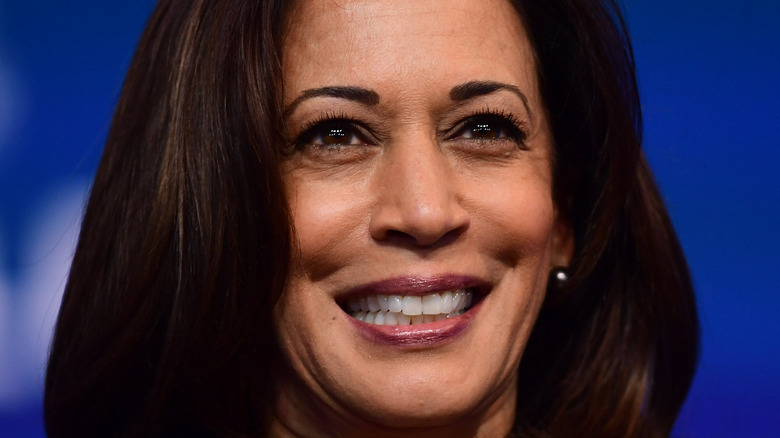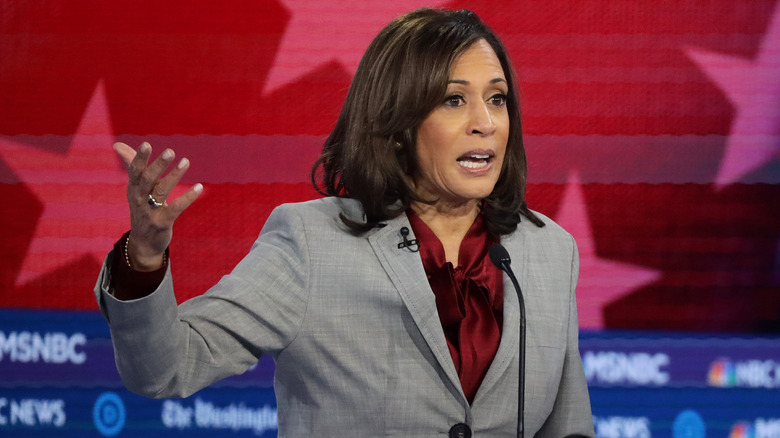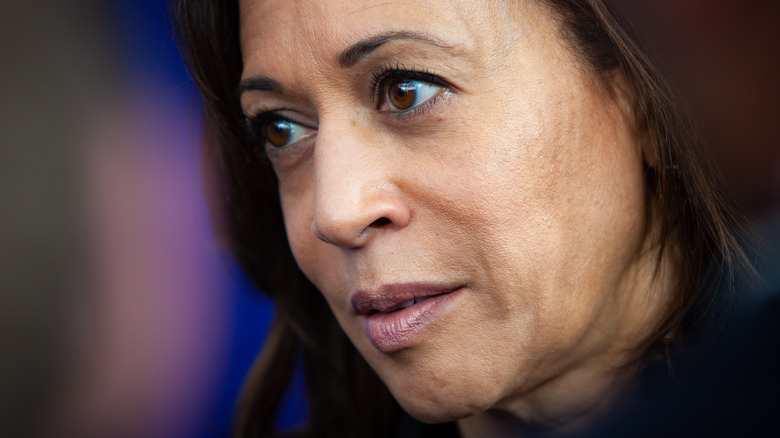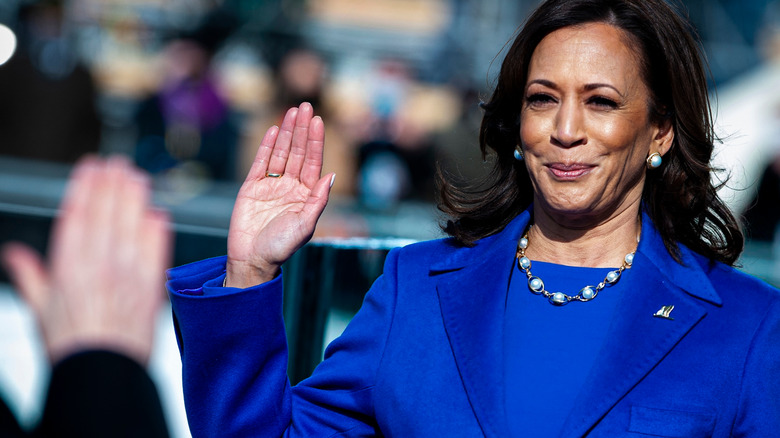Obstacles Kamala Harris Had To Overcome To Get Where She Is
Born and raised in Oakland and Berkeley to Jamaican and South Indian immigrants (via Berkeley News), Vice President Kamala Harris fought hard to get to where she is today. Inspired by her mother, Shaymala Gopalan, and significant figures in politics like Constance Baker Motley and Thurgood Marshall (via The White House), Harris found her footing in law by studying at Howard University in Washington, D.C. before graduating from the University of California Hasting College of the Law in San Francisco (via National Women's History Museum).
The seeds of her future as vice president of the United States began there, as she forged her political career as the first elected African American woman to become California's Attorney General in 2010. Six years later, she broke the glass ceiling again by becoming the second African American woman to earn a place in the U.S. Senate for her state of California. By 2019, she felt she had enough experience under her belt to run for president.
Kamala Harris faced more obstacles than her fellow running mates
Kamala Harris was one of six women in the Democratic Party to run for the 2020 United States presidential election (via CNBC), which broke records in the process. "The value of having multiple women candidates is that they force us to think about women candidates in a way that is not monolithic," Kelly Dittmar, a scholar at the Center for American Women and Politics, told CNBC.
However, for Harris, her journey to stand next to these five women as a woman of color was much more difficult. "Almost two decades after the Supreme Court's landmark ruling in Brown v. Board of Education, I was part of only the second class to integrate the Berkeley, California public schools," she said when Brett Kavanaugh was sworn in as an associate Justice on the Supreme Court in 2018 (via Vox), referring to the 1954 decision that segregation in schools was "unconstitutional" (via The History Channel).
She continued: "If that Court had not issued that unanimous opinion led by Chief Justice Earl Warren in that case argued by Thurgood Marshall, I likely would not have become a lawyer, or a prosecutor, or been elected district attorney or the attorney general of California."
Harris would have made history had she won the presidency
Had Kamala Harris successfully run for president, she would have become the first African American woman of South Asian heritage to be in office. But for Harris, her skin color didn't matter in her fight to serve the people of the United States. "When I first ran for office that was one of the things I struggled with, which is that you are forced through that process to define yourself in a way that you fit neatly into the compartment that other people have created," she told The Washington Post. "My point was: I am who I am. I'm good with it. You might need to figure it out, but I'm fine with it."
However, due to insufficient funds to continue her campaign, Harris had to pull out of the presidential race. "I've taken stock and looked at this from every angle, and over the last few days have come to one of the hardest decisions of my life," she wrote in a statement posted to Medium. "But I want to be clear with you: I am still very much in this fight," Harris added. "And I will keep fighting every day for what this campaign has been about. Justice for The People. All the people."
She made a different kind of history with Joe Biden
Eight months after conceding her run for the presidency, Joe Biden declared that he'd chosen Kamala Harris as his running mate (via NBC News). With her name on the ticket, she and Biden became unstoppable as they went on to win the 2020 presidential election. Despite claims by Former President Donald Trump that the vote was rigged, the Electoral College announced on Dec. 14, 2020, that Biden and Harris were the next president and vice president of the United States (via USA Today).
Shortly before votes were cast, Harris assured her supporters that women of color would never be alone. "Yes, sister, sometimes we may be the only one that looks like us walking in that room," Harris said (via The New York Times). "But the thing we all know is we never walk in those rooms alone — we are in that room together."
Harris affirmed that notion during her victory speech on Nov. 8, 2020 (via The Guardian), reflecting on the struggles women faced before her. "I reflect on their struggle, their determination, and the strength of their vision, to see what can be, unburdened by what has been," she declared. "I stand on their shoulders." And for the younger generation, she parted with this: "While I may be the first woman in office, I will not be the last, because every little girl watching tonight sees that this is a country of possibilities."



